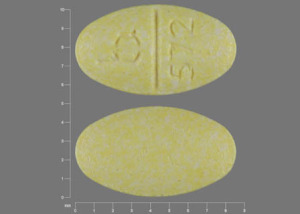Methotrexate Disease Interactions
There are 5 disease interactions with methotrexate.
Antineoplastics (applies to methotrexate) infections
Major Potential Hazard, Moderate plausibility. Applicable conditions: Infection - Bacterial/Fungal/Protozoal/Viral
Because of their cytotoxic effects on rapidly proliferating tissues, antineoplastic agents frequently can, to varying extent, induce myelosuppression. The use of these drugs may be contraindicated in patients with known infectious diseases. All patients should be instructed to immediately report any signs or symptoms suggesting infection such as fever, sore throat, or local infection during antineoplastic therapy. Close clinical monitoring of hematopoietic function is recommended.
Methotrexate (applies to methotrexate) liver disease
Major Potential Hazard, High plausibility. Applicable conditions: Alcoholism
The use of methotrexate is contraindicated as treatment for psoriasis or rheumatoid arthritis in patients with alcoholism, alcoholic liver disease or other chronic liver diseases. Methotrexate causes hepatotoxicity, fibrosis and cirrhosis, usually after long-term therapy. Fibrosis and cirrhosis may not be preceded by symptoms or abnormal liver function tests. If methotrexate is used, patients should be instructed to immediately report any signs or symptoms suggestive of hepatic dysfunction such as jaundice, dark urine, right upper quadrant pain, or anorexia. Persistent liver function test abnormalities and/or depression of serum albumin may require evaluation, including a liver biopsy.
Methotrexate (applies to methotrexate) myelosuppression
Major Potential Hazard, Moderate plausibility. Applicable conditions: Infection - Bacterial/Fungal/Protozoal/Viral, Bone Marrow Depression/Low Blood Counts, Anemia
Methotrexate can induce myelosuppression causing leukopenia, thrombocytopenia, neutropenia, pancytopenia and anemia. Therapy with methotrexate is contraindicated as treatment of psoriasis in patients with bone marrow suppression or preexisting blood dyscrasias. Methotrexate should be discontinued immediately in patients with psoriasis or rheumatoid arthritis if there is a significant fall in blood cell counts. If need outweighs risk, therapy with methotrexate should be administered cautiously in patients with malignancy and hematopoietic impairment. Additionally, methotrexate should be used with extreme caution in patients with active infection, and it is usually contraindicated in patients with overt or laboratory evidence of immunodeficiency syndromes. Patients should be instructed to immediately report any signs or symptoms suggesting bone marrow suppression or infection such as fever, sore throat, or bleeding. Clinical monitoring of hematopoietic function is recommended.
Methotrexate (applies to methotrexate) renal dysfunction
Major Potential Hazard, High plausibility. Applicable conditions: Pleural Effusion
Methotrexate is primarily eliminated by the kidney via glomerular filtration and active secretion. Clearance rates for methotrexate vary and at higher doses are generally decreased due to saturation of renal tubular reabsorption. Renal impairment or third space effusion (ascites, pleural effusions), decrease elimination and increase methotrexate serum concentrations. Therapy with methotrexate should be administered cautiously and at reduced dosages in patients with compromised renal function. Administration of leucovorin reduces toxicity from high dose methotrexate regimens or delayed elimination. Clinical monitoring of renal function is recommended.
Methotrexate (applies to methotrexate) stomatitis
Major Potential Hazard, High plausibility. Applicable conditions: Inflammatory Bowel Disease, Peptic Ulcer, Diarrhea
Methotrexate induces stomatitis within the oral mucosa and gastrointestinal tract. Therapy with methotrexate should be administered with extreme caution in patients with peptic ulcer disease or ulcerative colitis. If vomiting, diarrhea or ulcerative stomatitis occur, treatment should be discontinued until recovery to avoid the risk of hemorraghic enteritis or intestinal perforation which could be fatal.
Switch to professional interaction data
Methotrexate drug interactions
There are 716 drug interactions with methotrexate.
Methotrexate alcohol/food interactions
There are 3 alcohol/food interactions with methotrexate.
More about methotrexate
- methotrexate consumer information
- Check interactions
- Compare alternatives
- Pricing & coupons
- Reviews (335)
- Drug images
- Side effects
- Dosage information
- Patient tips
- During pregnancy
- Support group
- Drug class: antimetabolites
- Breastfeeding
Related treatment guides
Drug Interaction Classification
| Highly clinically significant. Avoid combinations; the risk of the interaction outweighs the benefit. | |
| Moderately clinically significant. Usually avoid combinations; use it only under special circumstances. | |
| Minimally clinically significant. Minimize risk; assess risk and consider an alternative drug, take steps to circumvent the interaction risk and/or institute a monitoring plan. | |
| No interaction information available. |
Further information
Always consult your healthcare provider to ensure the information displayed on this page applies to your personal circumstances.


